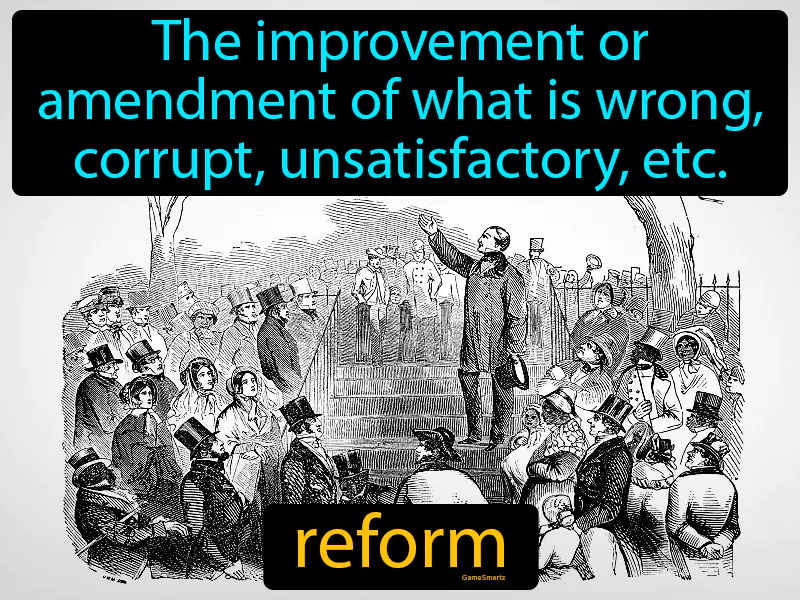Reform
Reform: Easy to understand
During the Industrial Revolution, reform was crucial as it aimed to address the poor working conditions, child labor, and environmental damage caused by rapid industrialization. Many people, including workers and social reformers, pushed for laws and changes to improve safety, reduce work hours, and ensure fair wages. These reforms helped create a more humane and balanced society, promoting the well-being of millions. Today, the concept of reform is still important as it encourages us to continuously improve systems that may not be fair or effective. For example, current movements advocating for climate change reform aim to protect our planet and ensure a healthier environment for future generations, which directly impacts our health and quality of life.

Practice Version

Reform: The improvement or amendment of what is wrong, corrupt, unsatisfactory, etc.. reform. In History, reform means making changes to fix problems in society or government.